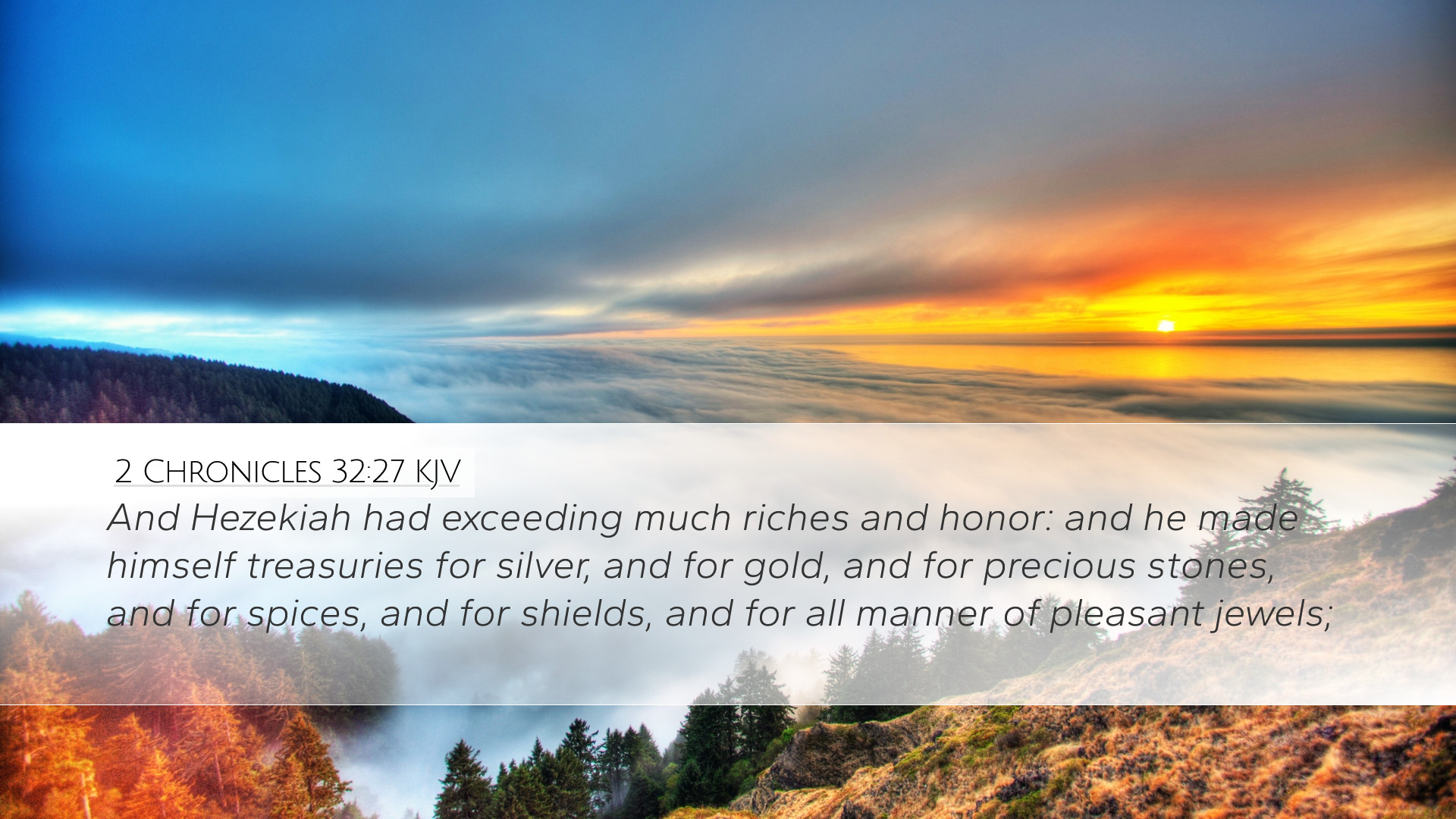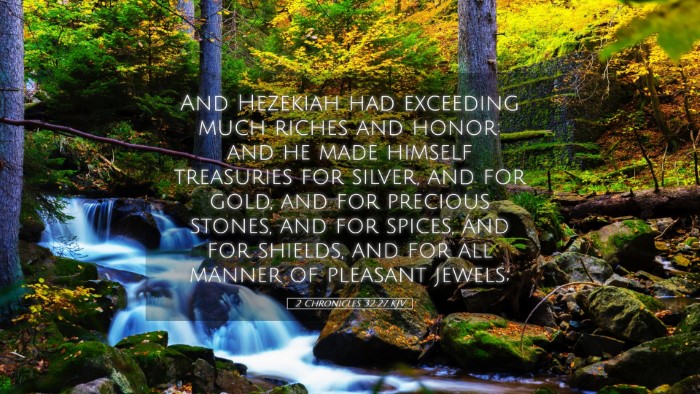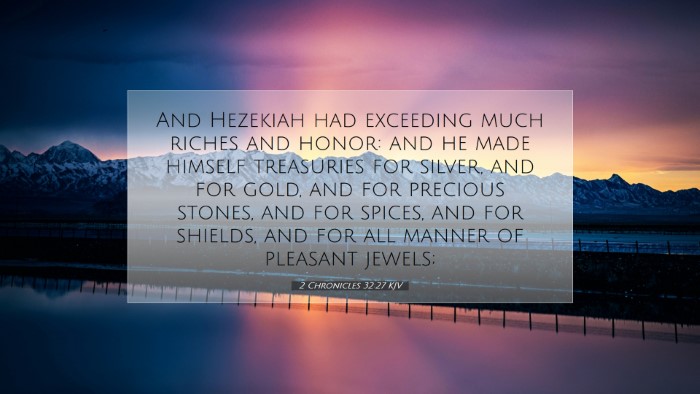Commentary on 2 Chronicles 32:27
Verse: "And Hezekiah had exceeding much riches and honour: and he made himself treasuries for silver, and for gold, and for precious stones, and for spices, and for shields, and for all manner of pleasant jewels;" (2 Chronicles 32:27)
Contextual Overview
The reign of Hezekiah is notable for its religious reforms and miraculous events, especially the deliverance from the Assyrian siege. This verse highlights the material prosperity Hezekiah experienced as a result of his faithfulness to God and the political stability during his reign.
Commentary Insights
Wealth and Honor
Matthew Henry comments extensively on the nature of Hezekiah's wealth, emphasizing that it was both exceeding and indicative of God's favor upon him. This wealth was not just for personal luxury but was also intended for the worship and service of God.
"The riches and honor that Hezekiah possessed were a testimony of God's blessing; for those who fear God, His blessings are abundant and manifold."
The Purpose of Wealth
Albert Barnes highlights an important application of this verse, suggesting that material blessings should be directed towards noble purposes. Hezekiah's treasuries were meant for the good of the nation, to support the temple service, and to engage in acts of charity.
- Dedication to God: The treasures represent offerings and materials for the temple.
- National Security: Wealth provided resources to fortify Jerusalem and support the military.
- Charitable Acts: Riches were to aid the poor and provide for the needy within his kingdom.
Spiritual Applications
Adam Clarke offers a theological perspective, encouraging readers to view material wealth through a spiritual lens. He asserts that earthly riches should remind believers of heavenly treasures, emphasizing the transient nature of physical wealth compared to spiritual riches.
"The possessions of this world might be plentiful, but they pale in comparison to the eternal riches found in Christ."
Reflection on Leadership
Hezekiah’s reign serves as a model for godly leadership. His accumulation of wealth isn't portrayed as selfishness but as preparedness for greater service. Both Henry and Barnes stress that leaders must guide their resources wisely, prioritizing divine purposes over personal gain.
Lessons for Today's Leaders
- Responsibility: With wealth comes the obligation to invest in God's kingdom.
- Wise Stewardship: Leaders should manage resources in a way that honors God and reflects His character.
- Impact on Community: Wealth should benefit the community, being a source of blessing rather than division.
Conclusion
2 Chronicles 32:27 stands as a poignant reminder of God's providence and the proper use of wealth. Hezekiah's story encourages believers to remember that all blessings, material or spiritual, are ultimately from God and should be utilized for His glory and the good of others. The commentary from Henry, Barnes, and Clarke collectively urges us to reflect on how we use our resources and to aspire towards a deeper understanding of true wealth in Christ.


